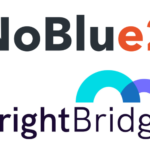We’re used to making – and breaking – our personal New Year’s resolutions. But what about New Year’s resolutions for business?
A New Year’s resolution is simply an objective. You use the New Year as an opportunity to set new goals that will help you compensate for your failings in the previous year, starting afresh.
In business, when we plan goals, we hold ourselves more accountable than we might do in our private lives. While the personal aims of getting fit or sticking to a new diet might already be fading away before the end of January, a business objective carries more weight. The plan is written and published to others. It has dependent actions, associated costs and allocated resources. It is something that you and your team aim to stick to. Therefore, having strong aims – or New Year’s resolutions – can be a good thing in business.
So, what New Year’s resolutions should you be making for your business for 2022? Here are some pointers for you.
Finance and Accounting
Of course, you already set numerous financial goals. But it’s not just your standard revenue, gross margin and profit targets – allocated by business unit and phased monthly or quarterly – that could benefit from a renewed New Year’s resolution focus.
By analysing your key performance indicators from last year, you may find that your cash flow was not optimal. So, a new target might be to speed up your accounting cycle, or to reduce debtor days.
If you don’t have detailed, insightful data easily to hand, then business decisions are slower and harder to make. And that’s not just for the finance team – it’s across the business. One New Year’s resolution to address this would be to implement new reporting software that will give you real-time, accurate information, modelling and analysis.
Operations
Operational targets vary according to your type of business.
A warehouse might want to optimise productivity, perhaps by increasing order throughput or the numbers of lines picked per worker.
Professional businesses will instead target the income generation of the client teams, so will want to improve billable time or attract new clients at higher hourly rates.
With increased online ordering resulting from the pandemic, businesses with an ecommerce side will want to examine their mix of sales according to channel. The food and drink industry in particular has experienced huge disruption and change that you will want to cater for in your New Year’s resolutions.
Customer Relationships
All too often, companies place so much emphasis on actually winning the business that they lose focus when it comes to delivering the level of customer service that they promise.
Complaints about declining customer service seem to abound at the moment. Some companies have used the pandemic as an excuse to offer poorer services – although others have legitimately suffered with not being able to adequately help customers while their staff have been working from home.
Fostering better customer relationships brings repeat business and encourages new custom too. It allows you to increase your prices and target better paying clients.
Your sales, marketing and customer service New Year’s resolutions all play into the scope of customer relationships. Perhaps you will focus on improving the user experience of your website; or will attract new customers through content marketing. On the service side, can you decrease the time it takes to solve customer issues, or achieve better on time in full (OTIF) delivery rates?
Staff
The recruitment and retention of staff is difficult at the moment. Lots of people re-evaluated their jobs during the pandemic. With the recent added impact of people returning to their home countries – due to the pandemic and also Brexit – many companies are struggling with labour shortages and skills gaps.
Getting the right people can be hard. New Year’s resolutions here will likely encompass many areas of human resources, like recruitment, onboarding, training, wellbeing, remuneration and benefits. Improving any of these will make you more attractive to potential new hires.
But don’t forget the importance of retention. Concentrating on keeping your staff will avert any future recruitment issues too. They have vital experience and knowledge that you won’t want to lose. With a refocus on work/life balance due to the pandemic, you might want to adjust your hybrid working policies, bring in new training or learning initiatives, and institute new programmes that emphasise wellbeing and good mental health for your employees.
Digital Transformation
The pandemic has shown how agility and flexibility can help with business prosperity. Companies that could quickly flex to change their offerings, or alter the way that they sold them, were successful in riding out the initial drops in their business and income.
Many were able to do this thanks to the support of their digital systems. For example, ecommerce systems became a lockdown saviour for some, allowing them to continue to sell goods while physical shops were not allowed to open.
A New Year’s resolution to tackle digital transformation could be the defining improvement for your company this year. You may decide to add ecommerce capabilities, or replace your ageing, legacy ERP system due to its pain points.
The implementation of a cross-functional ERP software solution is one digital transformation that can bring results for all staff. Systems like NetSuite will work for all users – from finance and accounting, sales, marketing, purchasing, billable staff, and warehouse management.
For a free business consultation or a quote for implementing NetSuite in your company, contact us for more information.










